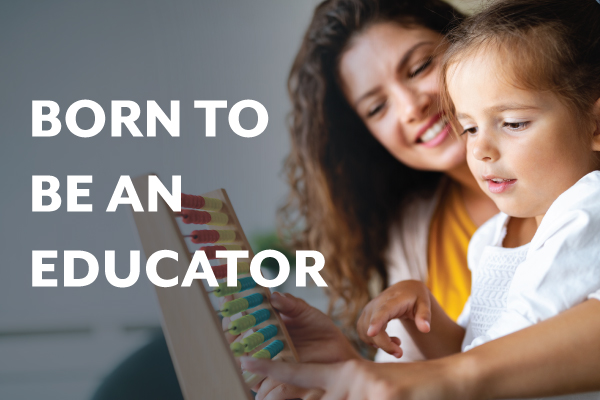There are many reasons to pursue a career in early childhood education and care. Careers in early childhood education can be rewarding, diverse and fun. The impact you have on young people can transform their lives and enrich yours, and the industry itself continues to grow and thrive too.
Government legislation such as the National Quality Framework and three year old kinder program ensures that early childhood education is a sector that is supported and delivers a progressive environment to work in. So, in addition to getting qualified, what do you need in terms of personal qualities to gain a career in early childhood education?
There is no particular ‘type’ of person who is best suited to a career as an early childhood educator. After all, there is a variety of different early childhood education and care career pathways to choose from, such as room leader, assistant, centre director, quality manager — that’s just to name a few. There are some skills and qualities however that could help you across these early childhood education roles and many of them can be learned along the way.
Top qualities and skills for an early childhood education career

1. Patience
Children can at times test your patience, but it’s an essential quality to work on in childcare. Patience will enable you to deliver optimal care and education and make your experience as an educator a positive one.
2. Communication skills
The ability to communicate effectively includes being able to give clear instruction, listen to others, negotiate calmly and have a meaningful two-way conversation.
3. Flexibility
In early childhood education things can and do change quickly and you may need to adapt to a change with short notice. Being flexible and adaptable is a useful quality in this industry so that you can pitch in when and where needed.
4. Common sense
Common sense is vital in early childhood education to keep children safe and comfortable in their care environment.
5. Caring nature
Being caring comes in many forms. For some it may be a soft voice or a big warm hug. It can be being observant and intuitive about the needs of others, or being approachable and willing to help. Find your unique way of caring for others to thrive as an early childhood educator.
6. Willingness to collaborate
While working in childcare settings you will need to collaborate with other educators on a daily basis, as well as working with groups of children, so being willing and able to work as a team is a must.
7. Problem solving skills
Effective problem-solving in a child care environment includes the initiative to take action, addressing a problem in a timely fashion and taking a creative approach to solving the issue at hand.
8. Open to learning
Learning shouldn’t finish when you’ve completed your qualifications in childcare. Being open to ongoing learning opportunities can include seeking out and participating in professional development and learning from those around you. There is an opportunity to learn every day!
9. Confidence
To thrive as an early childhood education professional, it’s important to grow your confidence. Don’t be afraid to make mistakes along the way because sometimes that is just another way we learn.
Whether you already possess one or more of these qualities or you are ready to develop them through training and experience, careers in early childhood education are a future-proof, fulfilling pathway for many. Use our checklist to see if you’re ready to study child care!



